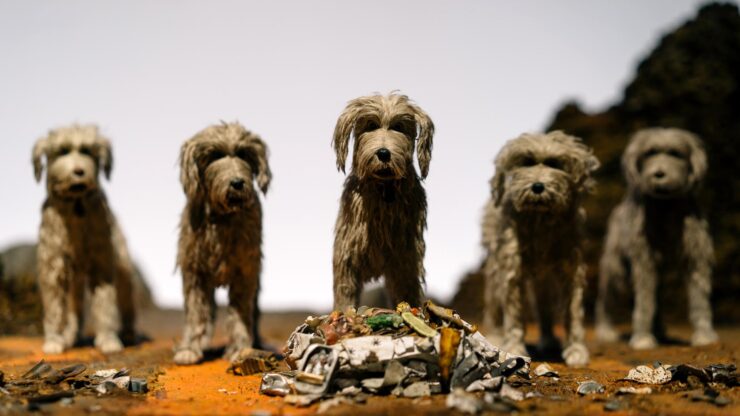Unlike Wes Anderson’s recent polished yet utterly befuddling films, The Darjeeling Limited is a breath of fresh air.
The Budapest Hotel, Fantastic Mr. Fox, and The French Dispatch are the first titles that surge to mind when thinking of American filmmaker Wes Anderson. Static, symmetrical, and aesthetically-pleasing shots with a candy-like colour palette are his unmistakable signature. His best film, however, has fallen into the shadows.
The Darjeeling Limited (2007) is a train that speeds through the bustling and peaceful landscapes of India. Three brothers, estranged after their father’s death, hop on and off the train as they embark on a spiritual journey.
Owen Wilson embodies the motherly elder brother, Francis Whitman. He tows a skeptical Peter along (Adrien Brody, known for The Pianist), and keeps a firm grip on an excitable Jack (Jason Schwartzmann).
The first few minutes are stolen by Adrien Brody’s graceful run-and-jump as he barely swings himself onto the swiftly departing train, where he joins his brothers.
There’s a clumsy yet amusing scuffle for control as they attempt to reacquaint themselves with one another. Francis is determined for this trip to be a cathartic bonding experience, whereas the other two can’t wait to escape their brother’s well-intentioned clutches.
However, as the film progresses, we see the unshakable complicity and instinctual, emotional bond they share — it’s both hilarious and endearing.
Unlike Anderson’s more recent films, polished yet utterly befuddling, this film felt sincere and human. The dialogue was comical and there were a lot of amusing moments where the brothers attempted to navigate all the obstacles the spiritual journey had to hurl at them. The symbolism in the props, the landscapes, and the dialogue is expertly woven into the story (keep an eye on Peter’s glasses, and pay attention to each retelling of Francis’s accident).
This isn’t a superficial comedy, though. The brothers must face the loss of their father and the severe damage it has inflicted upon their family, and their own will to live. Death finds its way back to them, and viciously rips open the wounds they’ve been unsuccessfully trying to conceal from each other, and themselves.
Twangy tunes, jaunty flute instrumentals, and Debussy’s “Clair de Lune” perfectly complement vibrant shots that could easily be paintings.
The story flowed steadily, and the characters were multidimensional and developed significantly, yet subtly over the one-and-a-half hour runtime. The chemistry between the actors and the dexterity with which they played their characters facilitated an emotional connection with the audience. Their chaotic relationship as brothers is believable. We root for them as a team, despite their apparent differences.
I especially loved Adrien Brody’s performance and its depth. I found his permanently mournful, saddened, even concerned expression quite interesting because he still managed to portray so many emotions.
We can quite literally see him loosen up and begin to enjoy his brothers’ company. They were quite the trio and I loved how they bounced off of each other, both with their lines and reactions.
All in all, this movie was absolutely outstanding, and the best of Anderson’s films I’ve seen so far. There was heart, wit, and a limited yet appreciable perspective into some of India’s many, many cultures, rituals, and languages.
Some of my ancestors being from Goa, it was memorable for me to re-watch the film with my grandfather, and to have him recognize and reminisce about some of the filming locations.
It was the perfect backdrop for this “coming-of-age” story. Now one of my favorite films, I would re-watch it in a heartbeat.




